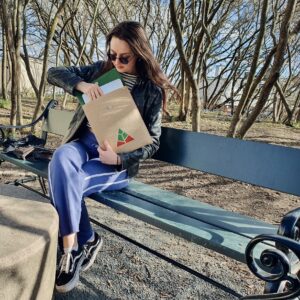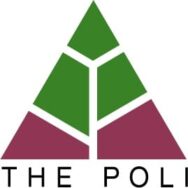In 1992, The Agenda 21 action plan was proposed to reduce the human impacts on the environment, forests, and biodiversity at local, regional, and global levels during the Earth Summit in Rio De Janeiro (Cohen, 2020; UN, 1992). However, the recommendation was not followed which has put ourselves and the Earth subject to great damage. There has been continuous exploitation of earth’s resources in an unsustainable manner, which has resulted in toxic substances being released into our natural environment for the last 30 years. We are releasing more than 30 billion tons of carbon into the atmosphere through fossil fuels use, forest damage, and other means every year (Kell, 2020). Forests are destroyed for agriculture and human settlement purposes and also through global warming-led wildfires and illegal logging. The damage to forest resources is causing stress on the natural habitat of wildlife and creating a pathway for animal-borne infectious diseases. As a consequence, dangerous viruses have spread – Severe Acute Respiratory Syndrome (SARS), Middle East Respiratory Syndrome (MERS), Ebola, Swine flu, Zika, etc. Scientists have warned that we may experience more animals to human transmission of infectious diseases from the industrial production of livestock, and encroachments to wildlife through destabilizing ecosystems (UNEP, 2016). We are now observing the effects of COVID-19 on our lives and the destabilization of the world economy.
The Intergovernmental Panel of Climate Change has also warned that we may encounter new kinds of viruses if the present economic pattern continues. Melting permafrost, as a consequence of global warming, can potentially release ancient viruses and bacteria as well as the possibility of northern countries encountering southern diseases such as Malaria and Dengue fever if the earth heats up more (Skelly, 2017).
What is the realization of COVID-19?
The planet can not bear our destructive behavior anymore. COVID-19 is forcing us to isolate and also showcasing the fragility of our economy. This virus can kill the wealthy, poor, or vulnerable, and is in-discriminant. If we want to protect ourselves from future threats, we need to transition to a new economic model that is based on ‘green’ low-carbon-based systems that allow the environment and circumstances necessary for a resilient future.

How can we live in a way that is conducive to a resilient future?
We can restore our ecology and environment through increased focus on organic and pastoral farming-based regenerative agriculture practices, afforestation and reforestation, fewer materials intensive lifestyle, renewable energy, and sustainable infrastructure use. Fair distribution of business profits to all stakeholders and workers involved in farming or industrial production, can help to achieve a resilient economy.
Global fashion brands source their products from countries around the world. Factory workers of developing countries involved in production are paid poor wages, while the corporations have huge profits. These people are losing jobs and getting reduced wages. In these times, we have not heard from the major brands about how they will help distressed workers survive to afford food, water, and shelter. Though some brands are forcing suppliers to accept their stock at a lesser price than the contract price or withhold payment for completed orders during the crisis period.
All of us are responsible to protect ourselves and the world from these human-caused difficulties. Hence, now is the time to rethink our purchasing and spending habits to choose products that also invest in building a better and resilient world. We often ignore the social value of a product, whether it comes from ethical sources, prioritizing names of famous brands. We have learned that a healthy community allows us to be healthy from the crisis. We can, therefore, influence the income and health conditions of all stakeholders through supporting businesses-major or small-or brands that prioritize environmental and societal commitment in their business model.
Let us create a more resilient future, by protecting ecology and supporting social and environmental economic progress.
The article was written by Mohammad Azim. The writer expressed a special acknowledgment to Nick Winfield, Sebastian Monomosuke Törngren, and Christina Johanne Kjellsen Hjørungdal for their contribution.
References:
Bloomer, P., 2020. Millions of garments workers face destitution as fashion brands cancel order. A commentary. Available at http://www.ethicalcorp.com/millions-garment-workers-face-destitution-fashion-brands-cancel-orders. Accessed June 8, 2020.
Cohen, M.J., 2020. Does the COVID-19 outbreak mark the onset of a sustainable consumption transition?, Sustainability: Science, Practice and Policy, 16:1,1-3, DOI: 10.1080/15487733.2020. 1740472.
Kell, G., 2020. Four lessons we should learn from the Pandemic. Available at https://www.eco-business.com/opinion/four-lessons-we-should-learn-from-the-pandemic/. Accessed May 6 2020.
Skelly, J.F., 2017. Long-dormant bacteria and viruses, trapped in ice and permafrost for centuries, are reviving as Earth’s climate warms. A BBC Report. Available at http://www.bbc.com/earth/story/20170504-there-are-diseases-hidden-in-ice-and-they-are-waking-up. Accessed May 8, 2020.
UN, 1992. Agenda 21. New York: United Nations. Available at https://sustainabledevelopment.un.org/content/documents/Agenda21.pdf. Accessed May 8 2020.
UNEP, 2016. Frontiers 2016: Emerging issues of environmental concern. Available at https://www.unenvironment.org/resources/frontiers-2016-emerging-issues-environmental-concern.
At The Poli, we envision a sustainable, Eco-Lifestyle future. Our mission is to protect the climate, environment and human health. Our blog writing has the intention to create awareness about the environment, responsible consumption and sustainability among the people. Your contribution is valuable in order to continue our efforts to manifest a more sustainable consumption and future. Thank You!
